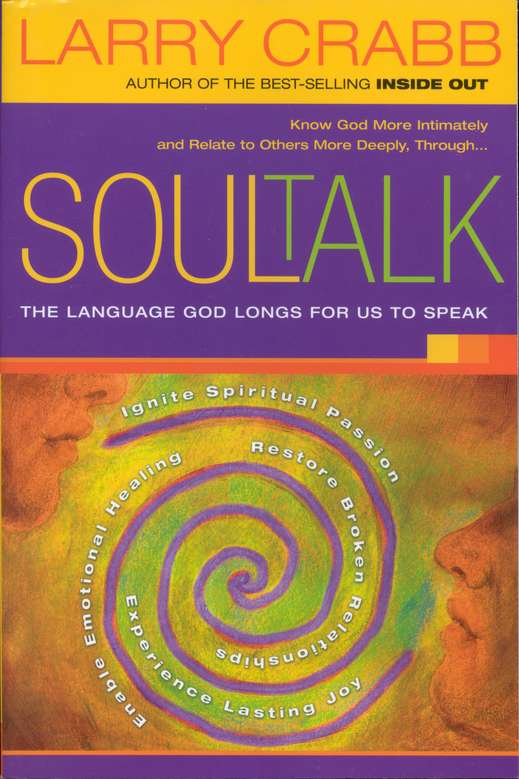 Thanks to Dr. Larry Crabb for his recent podcasts with us. In his book, SoulTalk: The Language God Longs for Us to Speak, he speaks to accountability partners about how they can deepen their conversations with one another.
Thanks to Dr. Larry Crabb for his recent podcasts with us. In his book, SoulTalk: The Language God Longs for Us to Speak, he speaks to accountability partners about how they can deepen their conversations with one another.
Do we really believe God can use the church community as a means of grace that transforms us more and more into the image of Christ? Dr. Crabb identifies five biblical ways of relating and communicating that stir us up to put off indwelling sin and put on Christlike love and good deeds. You can listen to all the parts of the interview below:
- Introduction to the Five Steps – Listen (11:33)
- Step #1: “Think Beneath” – Listen (11:00)
- Step #2: “Think Vision” – Listen (9:18)
- Step #3: “Think Passion” – Listen (7:40)
- Step #4: “Think Story” – Listen (7:28)
- Step #5: “Think Movement” – Listen (9:46)
- Complete Interview with Dr. Crabb – Listen (39:14)
What I love about Dr. Crabb’s teachings is that they are grounded in Trinitarian theology. Since eternity past, Father, Son, and Spirit have related to one another in perfect delight and love, and it is that very way of relating which God shares with His redeemed children.
Dr. Crabb writes in a recent issue of Christian Counseling Today:
On good authority I believe I was created to know God and His Son by His Spirit and to find life in that knowledge. Jesus made that clear in John 17:3. But I think I’m seeing a direction in our Christian culture that is taking us away from the very thing we all were created to enjoy and leading us instead toward a more easily felt counterfeit. Peter told us that all followers of Jesus “participate in the divine nature” (2 Peter 1:4).
My dabbling in Trinitarian theology has persuaded me that the divine nature is not a static thing like a set of attributes that define the “godness” of God, but is better thought of as a dynamic relational flow of life into others. I like putting it this way: the essential nature of God, shared equally and fully by each divine Person, is a disposition to live for the well-being of others at any cost to oneself. That’s the divine nature. Fallen human nature is another matter entirely.
Ever since Eden, all of us, every human being with one notable exception, are committed to our own well-being at any cost to others. Now that’s bad news. It means we can’t enjoy communion with God any more than oil and water can smoothly co-mingle.
But thanks to Jesus, thanks to His life, death and resurrection, His followers now actually and literally participate in His divine nature. I take that to mean that two radically opposing sources of energy, two incompatible motivations, compete at any given moment for control over how I relate to others. My relationships have become the front-line battlefield as I walk the narrow road to life. Either I relate, both to God and others, with the divine energy of love that sacrifices self-interest for the sake of others, or I relate with the fallen passion that hides a core commitment to my well-being at any cost to others, beneath a veneer of religious sociability.
(Larry Crabb, “Experiencing God by Expressing God,” Christian Counseling Today, Vol.17, No.2)
In other words, we participate in God’s nature in the context of our human relationships. Our fellowship with God is enjoyed as we relate to others with the same self-sacrificing character that each Person of the Triune God manifests. “Therefore be imitators of God, as beloved children. And walk in love, as Christ loved us and gave himself up for us, a fragrant offering and sacrifice to God” (Ephesians 5:1-2).






